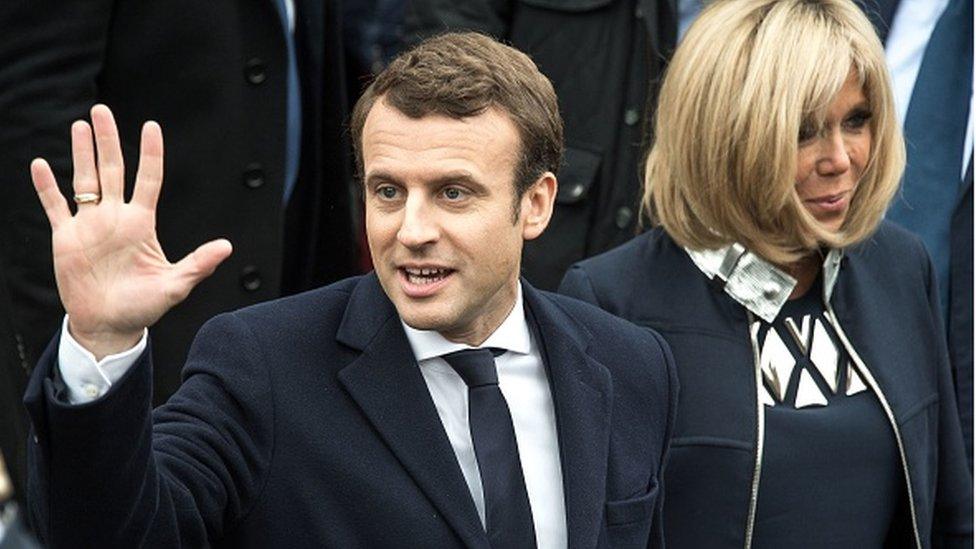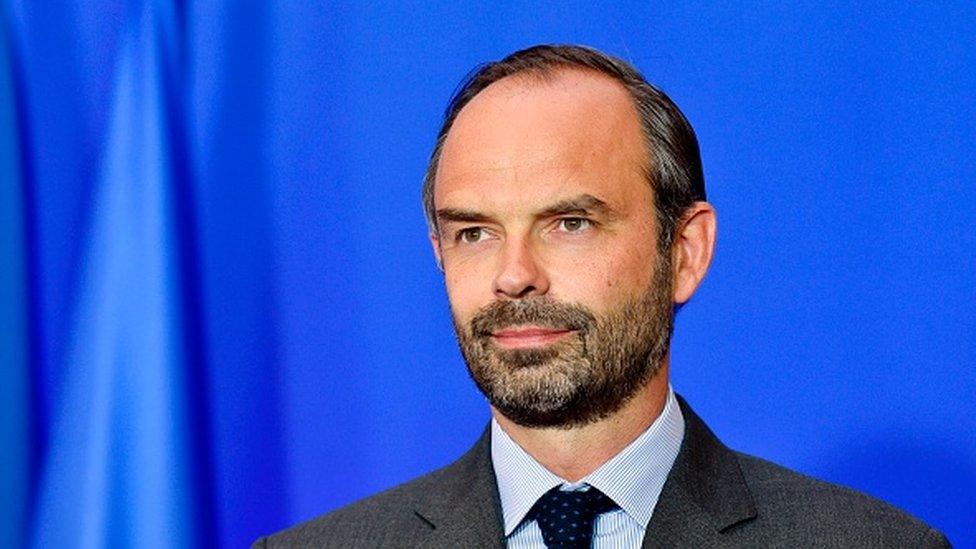France profile - Leaders
- Published
President: Emmanuel Macron

Emmanuel Macron and his wife Brigitte
A former economy minister who has never held elected office before, Emmanuel Macron won the 2017 presidential election run-off by a decisive margin over his far-right challenger Marine Le Pen.
The 39-year-old former banker launched an independent campaign for the presidency little over a year before the election, and his En Marche! movement galvanised enough support from the centre-right and left to knock the traditional Socialist and Republican party candidates out in the first round of voting.
He campaigned on a programme of modernising France's sluggish economy, streamlining the bureaucracy, and cutting unemployment, but for many voters his primary purpose was to stop Ms Le Pen's anti-European-Union, anti-immigrant National Front.
A large number of voters abstained or spoiled their ballot papers, and a full third voted for the National Front, suggesting the President Macron will face a challenge in uniting the country.
He served as economy minister in the cabinet of his Socialist predecessor Francois Hollande in 2014-2016, but resigned in disillusionment with the government's failure to back his pro-market policies.
Only a month after taking office, Mr Macron's political movement, now renamed La Republique en Marche!, pulled off the remarkable achievement of winning an absolute majority in parliamentary elections, with 308 out of 577 seats.
In foreign policy, Mr Macron is expected to work more closely with Germany to bolster the European Union, and to maintain President Hollande's opposition to Russian ambitions.
Prime minister: Edouard Philippe

Edouard Philippe is a moderate conservative
President Macron chose Edouard Philippe, a member of the centre-right Republicans party, as his prime minister, in a gesture to pragmatic conservatives willing to work with him on reforming labour laws and the public sector.
This succeeded to the extent that some centre-right members of parliament have agreed to back the government in parliament, although The Republicans form the main opposition bloc and are the largest party in the Senate.
The new government has already suffered a number of setbacks, with ministers from the allied MoDem centre party resigning after being named in corruption allegations.
And it can expect serious opposition to its ambitions, possibly on the streets, from trade unions and the radical left-wing France Unbowed movement, which has pushed the more moderate Socialists onto the political margins.
Mr Philippe was an ally of Alain Juppe on the centrist wing of The Republicans, and briefly served as ecology minister in Mr Juppe's government in May-June 2007.
Since then his power base has been Le Havre in Normandy, where he has served as mayor since 2010.